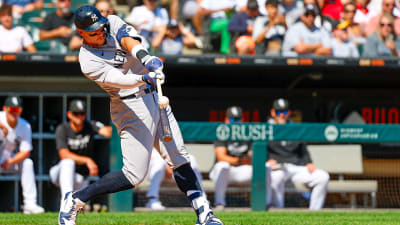
Aryna Sabalenka successfully defended her US Open crown in 2025, defeating Amanda Anisimova in a gripping final that tested not only her tennis but also her mental resilience. Speaking in a candid press conference afterwards, Sabalenka shared how lessons from painful defeats earlier in the season shaped her approach to this victory.
“Winning this one means a lot, defending the title,” Sabalenka said, still overwhelmed after her triumph. “I lost a couple of finals at the Grand Slams this season. I cannot explain the feelings, but I’m just speechless right now.” For Sabalenka, who had suffered heartbreak at both the Australian and French Opens, this victory carried the weight of redemption.
When asked what changed, Sabalenka admitted she had to confront her own mindset. “After Australia, I thought the right way would be just to forget it and move on. But then the same thing happened at the French Open,” she explained. “So I figured it was time to sit back, look at those finals, and learn something. I didn’t want it to happen again and again.” Her reflections even came while on holiday in Mykonos, where she studied her mistakes with renewed clarity.
The Belarusian described how she realized she had underestimated her opponents. “I thought that if I made it to the final, it meant I was going to win it. I didn’t expect players to come out there and fight. That was a completely wrong mindset,” she confessed. In New York, she vowed to approach every point with control and composure. “It doesn’t matter what happens in the match… just focus on myself and the things I have to do to win.”
Lessons in control and composure
Sabalenka said one of the key moments came late in the second set when Anisimova fought back. “There were two moments where I was really close to losing control,” she admitted. “But I told myself, no, it’s not going to happen. That’s what you expect in a final — the player will fight back and do her best. I just tried to focus one step at a time.”
The turning point in her mental strength, she revealed, came from reading The Door to the Magic Shop, a book that helped her understand the power of controlling emotions. “It’s about how the brain works, how to not overthink,” she said. “Reading the book, I realized a lot of things. It really helped me to stay focused on the right things at important points.”
Sabalenka also credited her team, including new addition Max Mirnov, for fine-tuning her game. “Max is a new voice in our team. He analyzes a lot and helped me understand how to play against aggressive players who constantly press you,” she explained. “It was a team effort. After Wimbledon I took a little break, then we came back, worked on mistakes, and brought in Max. It was the right decision.”
A victory for family and legacy
The US Open title also carried deep personal meaning for Sabalenka. “When my dad passed away, it was a tough moment for me and my family,” she said. “But I decided to take it as my mission to put our family name in history. I feel his protection from up there — he became my power.”
Sabalenka added that learning to take responsibility for her own mental battles has been crucial. “I worked with a psychologist for four or five years, and she helped me a lot. But at some point I realized I was relying on her too much. I wasn’t taking responsibility over my actions,” she explained. “Now, I’m proud I figured it out myself. That’s why under pressure I can handle my emotions much better — because I have a better understanding of who I am.”
Champagne, celebration, and perspective
Despite the serious tone of much of the press conference, Sabalenka’s personality shone through with humour. Asked about champagne celebrations, she laughed: “Well, actually, I didn’t have much. We were just spraying it out. Cheers, guys!”
Her final message after a rollercoaster season was simple but powerful. “If I’m going to be in another final, I hope I’ll always be more in control. Today I proved to myself that I can handle it.”
More must-reads:
- Ravens' Lamar Jackson learns NFL punishment decision after shoving fan
- Two analysts offer differing views on Billy Napier hot seat talk
- The '200-passing yards in first 20 NFL games' quiz
Breaking News
Trending News
Customize Your Newsletter
 +
+
Get the latest news and rumors, customized to your favorite sports and teams. Emailed daily. Always free!








